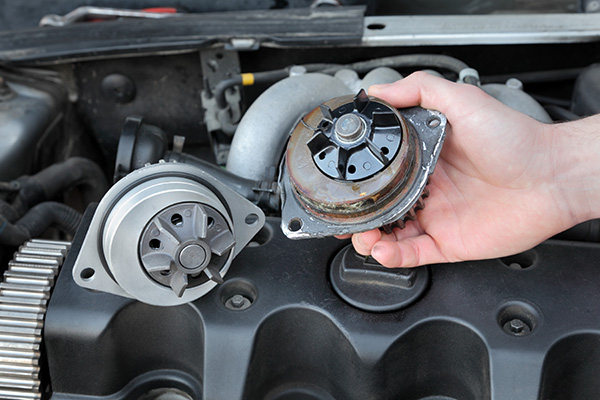
European vehicles are known for their refined performance, responsive handling, and advanced engine technology. Many of them use turbocharged engines to boost horsepower without increasing engine size. While these engines are efficient and powerful, they tend to burn more oil than naturally aspirated engines. For many European car owners, this is a frustrating and sometimes confusing issue. Understanding why it happens can help you protect your engine and avoid long-term damage.
Why Turbocharged Engines Use More Oil
A turbocharger forces more air into the engine’s cylinders, which increases combustion and power output. This process also increases heat and pressure inside the engine. To cope with those demands, turbocharged engines often require tighter tolerances and more lubrication. More heat means more thermal stress on seals and gaskets. Over time, that stress may allow small amounts of oil to escape and burn.
In addition, oil is used to cool and lubricate the turbo itself. The turbocharger spins at extremely high speeds (sometimes over 100,000 RPM), and its bearings need a steady flow of oil to stay cool and function properly. Some of that oil may burn off during operation, especially if the engine isn’t maintained properly.
European Engines Are Built Differently
European manufacturers often design engines with performance in mind. These engines may have lower tension piston rings to reduce internal friction and improve fuel economy. While this helps performance, it can also allow a small amount of oil to slip past the rings and burn in the combustion chamber. This is more likely when the engine is under load or driven aggressively.
Additionally, most European vehicles have extended oil change intervals up to 10,000 miles. While the oil used in these vehicles is usually synthetic and high-quality, it still breaks down over time. As it ages, it becomes less effective at protecting the engine and may vaporize more easily, contributing to oil loss.
Worn Seals and Valve Guides Can Contribute
As engines accumulate miles, seals and valve guides begin to wear. Valve seals keep oil from leaking into the combustion chamber through the intake and exhaust valves. If they become brittle or worn out, oil may seep through and burn off during combustion. This is a common issue in higher-mileage engines and can be more pronounced in turbocharged models due to the increased pressure.
PCV (Positive Crankcase Ventilation) systems are also critical in managing pressure inside the engine. If the PCV valve becomes clogged or malfunctions, excess pressure can force oil past seals and gaskets. This leads to increased oil consumption and can also cause oil to collect in the intake system.
Oil Type and Driving Habits Matter
Using the correct oil is especially important in turbocharged European engines. These engines require synthetic oils that can handle high temperatures and maintain proper viscosity. Using conventional oil or low-quality synthetic blends can cause excessive oil consumption and increase engine wear.
Driving habits also play a role. Short trips where the engine doesn’t reach full operating temperature can lead to fuel and moisture buildup in the oil. This dilutes the oil and reduces its effectiveness. Aggressive driving or high-RPM operation can also lead to higher oil usage, especially if the engine isn’t warmed up properly before being pushed.
How to Tell If Your Car Is Burning Oil
Most drivers first notice oil consumption when the oil level drops between oil changes. If you find yourself adding oil regularly, your engine may be burning it. Blueish smoke from the exhaust is another clue, especially on startup or acceleration. You might also notice a burning smell from under the hood, which can indicate oil leaking onto hot components.
A professional inspection can confirm the cause. Technicians may perform a compression test, check for oil leaks, and inspect the turbo system and PCV components to determine where the oil is going.
Can You Prevent Oil Burn in Turbocharged Engines?
You can reduce the amount of oil your engine burns by sticking to a shorter oil change schedule than the manufacturer recommends. Using high-quality synthetic oil that meets or exceeds the manufacturer’s specs is essential. Keeping the engine well-maintained, including the PCV system, can also make a big difference.
Letting the engine warm up before driving hard and avoiding long periods of idling can help preserve seals and keep oil from thinning out. If your car is older or has higher mileage, it may be worth asking a technician about using slightly thicker oil or additives that reduce burn-off. However, only do this with professional guidance.
Trust Your European Engine to the Experts at European Auto Motors in Doral, FL
If your European vehicle is using more oil than it should, European Auto Motors in Doral, FL, can help. Our technicians specialize in European makes and understand the unique demands of turbocharged engines. We’ll inspect your car for worn seals, faulty PCV systems, or oil-related issues and provide honest, effective solutions.
Schedule your service today and keep your engine running strong, mile after mile.